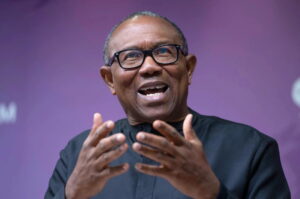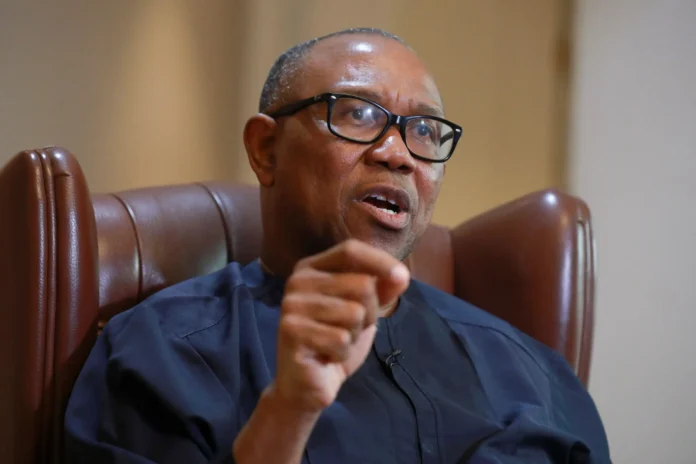The ongoing detention of Nnamdi Kanu, leader of the Indigenous People of Biafra (IPOB), continues to stir controversy in Nigeria’s political landscape. Peter Obi, the 2023 presidential candidate of the Labour Party, has joined a growing chorus of voices calling for Kanu’s release, highlighting the complex interplay between security concerns, political tensions, and the rule of law in Africa’s most populous nation.

Speaking to reporters in Onitsha, Obi emphasized the importance of adhering to court decisions and the rule of law. “We are in a democracy, and we should not be doing things that are arbitrary and not within the law,” he stated. This stance reflects a broader concern about the government’s approach to dissent and separatist movements, particularly in the South-East region.
Kanu’s case has become a flashpoint for discussions about national unity, security, and justice in Nigeria. Arrested in 2015, his journey through the legal system has been marked by controversy, including allegations of extraordinary rendition and violations of international law. The Court of Appeal’s decision to acquit Kanu in October 2022, later overturned by the Supreme Court, has only intensified the debate surrounding his detention.
The government’s reluctance to release Kanu, citing security concerns in the South-East, underscores the delicate balance between maintaining national stability and respecting judicial decisions. This tension is further complicated by the ongoing insecurity in the region, which some attribute to IPOB’s activities.
Obi’s call for Kanu’s release is not isolated. It echoes similar appeals from other prominent Igbo leaders, including Governors Charles Soludo of Anambra State and Peter Mbah of Enugu State. These voices reflect a growing sentiment in the South-East that dialogue and political solutions, rather than continued detention, might be more effective in addressing the root causes of separatist agitations.
The situation also highlights the broader challenges facing Nigeria’s democracy. The insecurity plaguing various parts of the country, including the South-East, has led to fears of Nigeria potentially sliding towards becoming a failed state. Obi’s comments on this issue reflect a growing concern among political leaders about the need for more effective strategies to combat violence and instability.
Moreover, the Kanu case raises questions about Nigeria’s approach to managing ethnic and regional tensions. The South-East, predominantly Igbo, has long felt marginalized in national politics. The handling of Kanu’s case and the broader Biafran movement is seen by many as a litmus test for the government’s ability to address these historical grievances constructively.
As Nigeria grapples with these complex issues, the calls for Kanu’s release represent more than just a legal matter. They embody broader debates about national unity, the limits of federal power, and the path towards a more inclusive and stable democracy.
The coming months will be crucial in determining how the Nigerian government navigates these challenges. Will it heed the calls for Kanu’s release and pursue a more conciliatory approach, or will it maintain its current stance, citing security imperatives? The answer to this question could have significant implications for Nigeria’s political stability and its quest for national cohesion.
As the debate continues, it’s clear that the Kanu case remains a significant factor in Nigeria’s political discourse, intertwining issues of law, security, and national identity in ways that will likely shape the country’s future for years to come.




